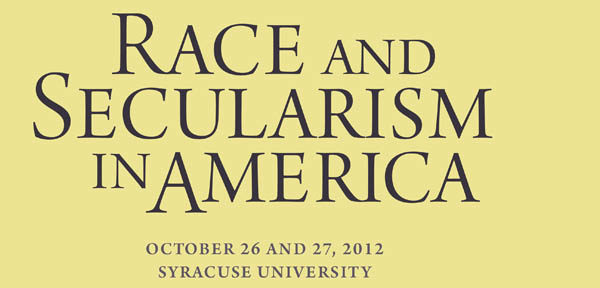
In what follows I want to trace a political theology of miracles that makes possible their circulation in U.S. revivalism. A straightforward theology—namely that God does miracles—is certainly part of the motivating belief for revivalism. But I want to trace here the political contours of revivalisms’ continuous circulation of the miraculous, well past the time that secularization theory suggested that they would give way instead to secularity, science and the enlightenment.

I join this conversation as a political theorist having just published a book, Beyond Church and State: Democracy, Secularism, and Conversion (Cambridge 2013), in which I argue that the modern secular imaginary is premised upon an insufficient image of secularism as the separation of church and state, and that secularism should instead be understood as a process of conversion that reshapes key dimensions of both religious and political life

The lectionary readings for Epiphany bathe the reader in the language of light. Isaiah 60:1 commands the people of Zion to “Arise, shine; for your light has come.” Psalm 72:5 invokes those celestial light-givers, the sun and moon. And of course Matthew 2:2 gives us the splendid star-following magi and their sparkly gift of gold. In our most domesticated and tamed interpretations, we bask in the warm and cheerful glow emanating from these readings. Like our fireplaces keeping the gray winter at bay, these passages have become homey and cozy for many readers. Truth be told, I rather like that warm glow this time of year! Yet when these passages are let out of the house, they open up a larger landscape filled with things other than light and joy. Yes, they celebrate divine justice for the poor and the leader’s power to create it. They also illuminate the darkness and deception of power politics. They lift up the vulnerability of the divine sovereign made flesh, but also blatantly seek world dominion for the Davidic king. They rejoice in the manifestation of God, but also point to places where God‘s justice is eclipsed by political animals. In short, these passages for Epiphany disorient us about God and politics as much as they reveal God‘s relationship to the world…
If it is at all possible, a Muslim hopes to live in a society where Islamic norms, morality and etiquette flourish, and where they cannot be publicly violated. Similarly, if it is at all possible, provided that he does not perpetuate further harm, every Muslim should command the right and forbid the wrong.



